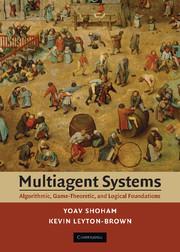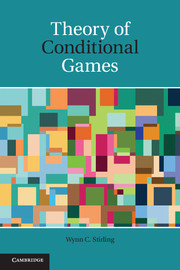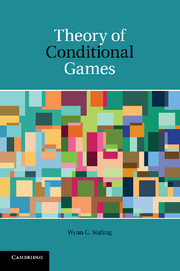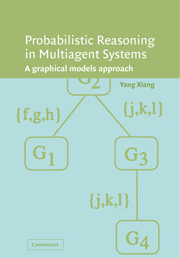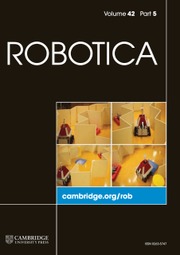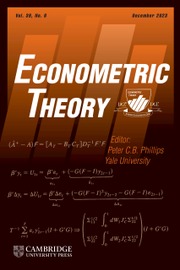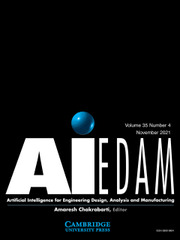Multiagent Systems
Multiagent systems combine multiple autonomous entities, each having diverging interests or different information. This overview of the field offers a computer science perspective, but also draws on ideas from game theory, economics, operations research, logic, philosophy and linguistics. It will serve as a reference for researchers in each of these fields, and be used as a text for advanced undergraduate or graduate courses. The authors emphasize foundations to create a broad and rigorous treatment of their subject, with thorough presentations of distributed problem solving, game theory, multiagent communication and learning, social choice, mechanism design, auctions, cooperative game theory, and modal logics of knowledge and belief. For each topic, basic concepts are introduced, examples are given, proofs of key results are offered, and algorithmic considerations are examined. An appendix covers background material in probability theory, classical logic, Markov decision processes and mathematical programming.
- First rigorous introduction covering multiagent systems
- Covers broad area including computer science, game theory, and logic
- Does not require knowledge beyond typical undergraduate study and offers background material for probability theory, classical logic, and mathematical programming
Reviews & endorsements
'… an excellent volume … It is the first book I have read that brings together the relevant mathematical results from such a wide variety of underlying disciplines. The writing is very clear, and the production standard is excellent … an invaluable reference manual for graduate students and researchers working on these topics … The price is appropriate for a volume of this type, especially as the book serves both to educate the reader and to serve as a reference manual.' Journal of the Operational Research Society
Product details
February 2009Hardback
9780521899437
504 pages
257 × 185 × 36 mm
1.03kg
14 tables
Available
Table of Contents
- 1. Distributed constraint satisfaction
- 2. Distributed optimization
- 3. Introduction to non-cooperative game theory
- 4. Computing solution concepts of normal-form games
- 5. Games with sequential actions
- 6. Richer representations
- 7. Learning and teaching
- 8. Communication
- 9. Aggregating preferences
- 10. Protocols for strategic agents
- 11. Protocols for multiagent resource allocation
- 12. Teams of selfish agents
- 13. Logics of knowledge and belief
- 14. Beyond belief.

